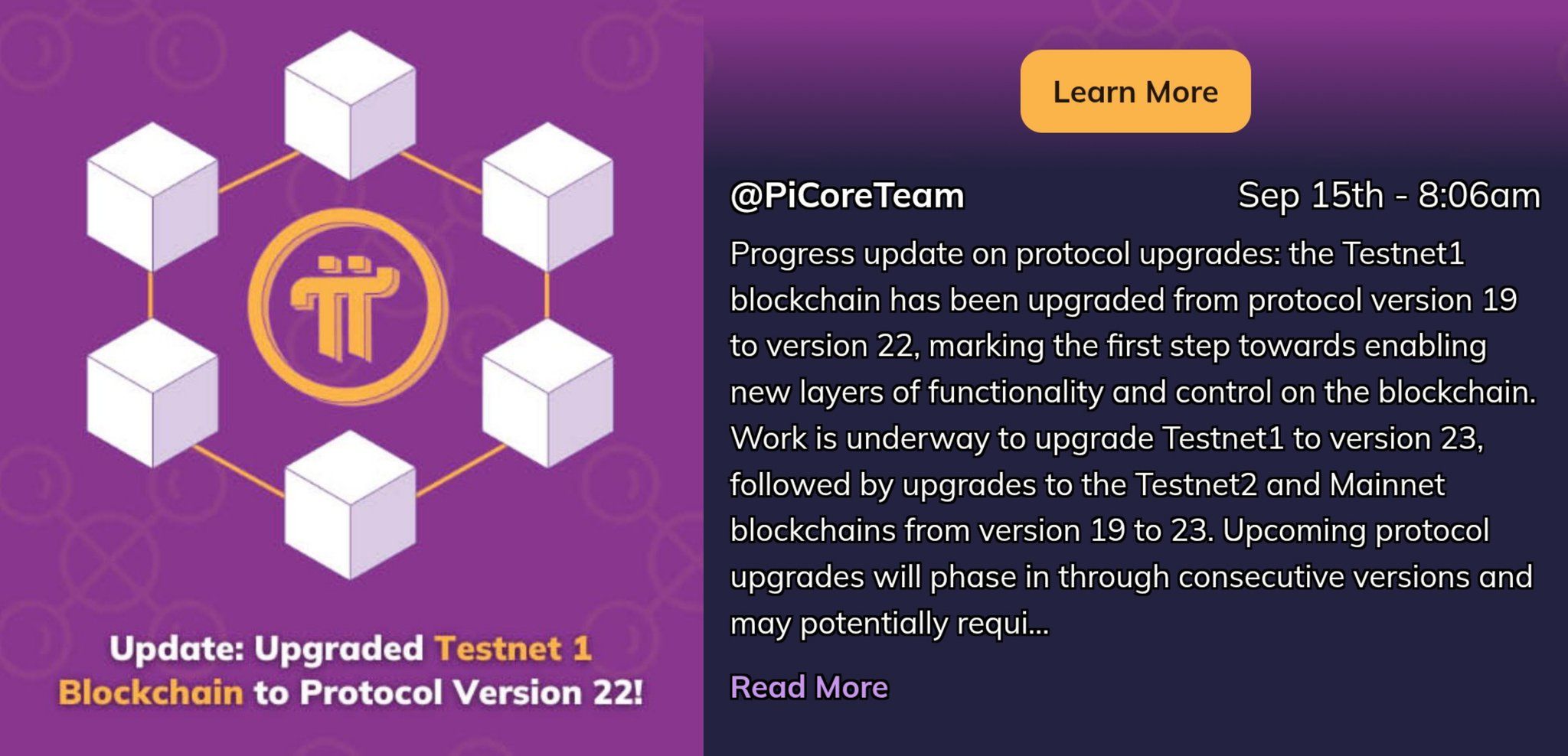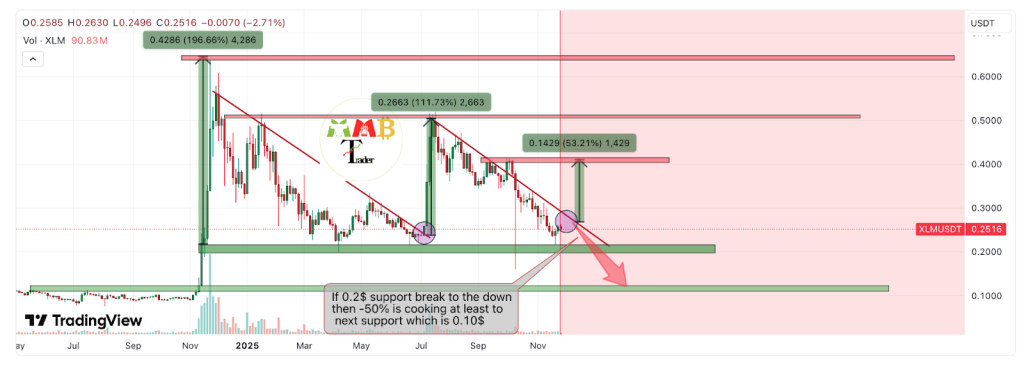The popular cryptocurrency mining platform Pi Network has recently shared exciting updates about its major protocol upgrade. Following the announcement made in late August 2025, the project is steadily moving from protocol version 19 to version 23 — a milestone expected to bring important improvements to the ecosystem.
Testnet1 Now Upgraded to Version 22
According to the official Pi Network app, the Testnet1 blockchain has successfully been upgraded from protocol version 19 to version 22. This marks a critical first step toward implementing new layers of functionality and improved network control.
The team is actively working to upgrade Testnet1 further to version 23, which will be followed by similar upgrades for Testnet2 and the Mainnet blockchains, moving them from version 19 to 23.
As part of the upgrade process, the protocol will roll out in phases through consecutive versions, and some temporary outages may be required to ensure a smooth transition.
 Source: @PiNetwork24X7 (X)
Source: @PiNetwork24X7 (X)
Key Effects of the V23 Protocol Upgrade
| Protocol-Level KYC Integration | Improved compliance and support for third-party identity solutions |
| Rust Smart Contract Support | Enhanced security and efficiency of smart contracts |
| Linux Node Compatibility | Broader OS support, increasing network decentralization |
| Stellar Consensus Protocol (SCP) Alignment | Better scalability and transaction handling |
| Mainnet Readiness | Prepares Pi for a stable and secure real-world adoption |
What Makes V23 So Important?
- Protocol-Level KYC Integration
One of the most anticipated features of the V23 upgrade is the introduction of Know Your Customer (KYC) integration at the protocol level. This enhances the platform’s regulatory compliance, giving it an edge in markets where identity verification is essential.
By embedding KYC directly into the protocol, Pi Network opens doors to future partnerships with third-party identity verification solutions, potentially expanding its ecosystem and user base. - Rust Smart Contract Support
The addition of Rust programming language support for smart contracts is another game-changer. Known for its performance and memory safety, Rust ensures that contracts are more efficient, secure, and less prone to vulnerabilities compared to some older smart contract languages.
This update positions Pi Network for more sophisticated and reliable decentralized applications (dApps) in the near future. - Linux Node Compatibility
Previously limited to a narrower set of operating systems, the upgrade now makes Linux nodes fully compatible with Pi Network.
This change broadens participation in network maintenance and validation, significantly improving decentralization and system resilience. - Stellar Consensus Protocol (SCP) Upgrade
Pi Network runs on the Stellar Consensus Protocol and Stellar Core, benefiting from Stellar’s recent network upgrades.
The V23 update ensures alignment with Stellar’s enhancements, improving the network’s scalability, transaction processing speed, and reliability under heavy usage. - Mainnet Readiness
Perhaps the most critical aspect of this upgrade is its role in paving the way for Pi Network’s upcoming mainnet readiness.
Fixes to consensus algorithms and transaction processing, along with better network stability measures, make the ecosystem ready for real-world adoption.
With V23, Pi moves closer to functioning as a fully independent blockchain network, handling live transactions and smart contracts on the mainnet.
Final Thoughts
The V23 protocol upgrade is more than just a version bump — it’s a significant step toward making Pi Network a fully functional, decentralized, and compliant blockchain platform.
From improving KYC processes to enabling advanced smart contracts and increasing decentralization, this upgrade demonstrates the project’s commitment to long-term growth and sustainability.
If you’re part of the Pi community or interested in the future of crypto networks, keeping an eye on the V23 rollout will be key.



